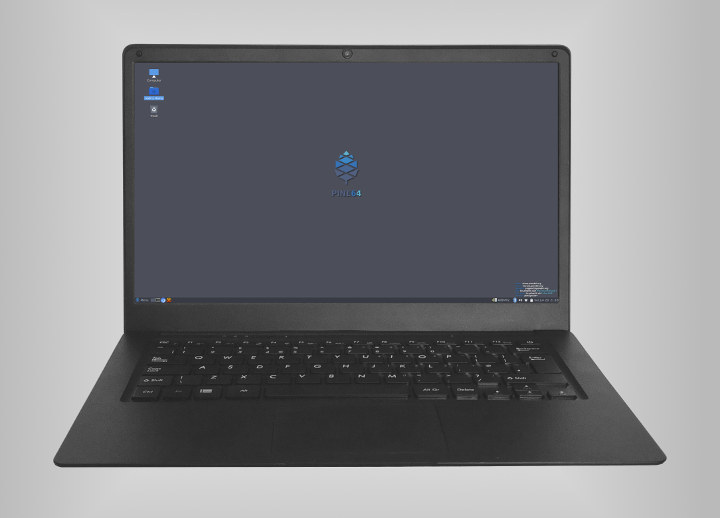PineBook Pro Arm Linux Laptop now up for pre-order for $199.99


Pine64 unveiled a Pinebook Pro laptop prototype at FOSDEM 2019 as an update to the original Allwinner A64 powered Pinebook laptop, but instead of just being a toy to play with, Pinebook Pro aimed to be used as a daily driver thanks to a relatively powerful Rockchip RK3399 processor combined with 4GB RAM, and 64/128GB storage, and equipped with a 14″ Full HD display all for a target price of $200.
Last May, we noticed some good progress on the software development side with a demo showcasing Ubuntu & Debian with MATE desktop, 4K video playback, 3D graphics acceleration, and USB-C video output. The good news is that Pinebook Pro has just launched and can be pre-ordered for $199.99 on Pine64 store. [Update: If you are an existing forum member, you may want to redeem your coupon here]
-

- Login or register to post comments
 Printer-friendly version
Printer-friendly version- 11485 reads
 PDF version
PDF version
More in Tux Machines
- Highlights
- Front Page
- Latest Headlines
- Archive
- Recent comments
- All-Time Popular Stories
- Hot Topics
- New Members
digiKam 7.7.0 is released
After three months of active maintenance and another bug triage, the digiKam team is proud to present version 7.7.0 of its open source digital photo manager. See below the list of most important features coming with this release.
|
Dilution and Misuse of the "Linux" Brand
|
Samsung, Red Hat to Work on Linux Drivers for Future Tech
The metaverse is expected to uproot system design as we know it, and Samsung is one of many hardware vendors re-imagining data center infrastructure in preparation for a parallel 3D world.
Samsung is working on new memory technologies that provide faster bandwidth inside hardware for data to travel between CPUs, storage and other computing resources. The company also announced it was partnering with Red Hat to ensure these technologies have Linux compatibility.
|
today's howtos
|









.svg_.png)
 Content (where original) is available under CC-BY-SA, copyrighted by original author/s.
Content (where original) is available under CC-BY-SA, copyrighted by original author/s.

Pinebook Pro Lap goes on pre-order for $199 with new twist
Pinebook Pro Lap goes on pre-order for $199 with new twist: privacy switches
$200 Linux Laptop Pinebook Pro is Available for Pre-order
$200 Linux Laptop Pinebook Pro is Available for Pre-order
Pinebook Pro Linux laptop goes up for pre-order for $200
Pinebook Pro Linux laptop goes up for pre-order for $200
New Raspberry Pi laptop rival
New Raspberry Pi laptop rival: $200 Linux-based Pinebook Pro available to pre-order
New Atlas coverage
Linux-based Pinebook Pro has 1080p display, multi-core processing and privacy switches
Late update
You Can Buy the $199 Pinebook Pro Linux Laptop Right Now
Pinebook Pro ($199) Linux Laptop Pre-Orders are Available
Pinebook Pro ($199) Linux Laptop Pre-Orders are Available to Everyone
Pinebook Pro Linux laptop launches from $199
Pinebook Pro Linux laptop launches from $199
The Second Window of the Pinebook Pro Pre-Order
The Second Window of the Pinebook Pro Pre-Order has been Announced